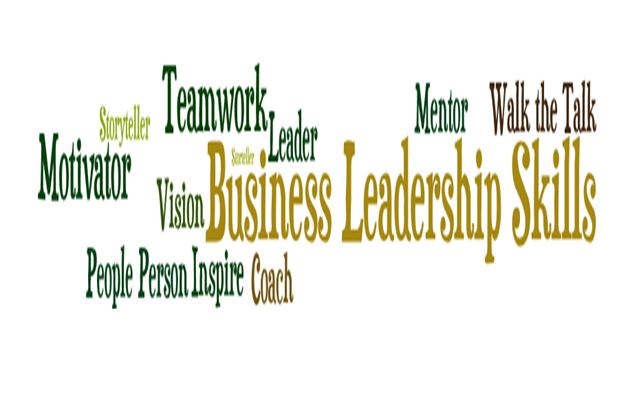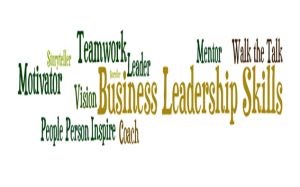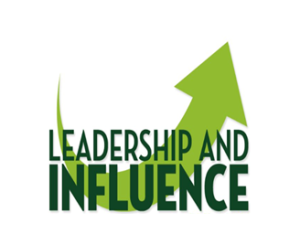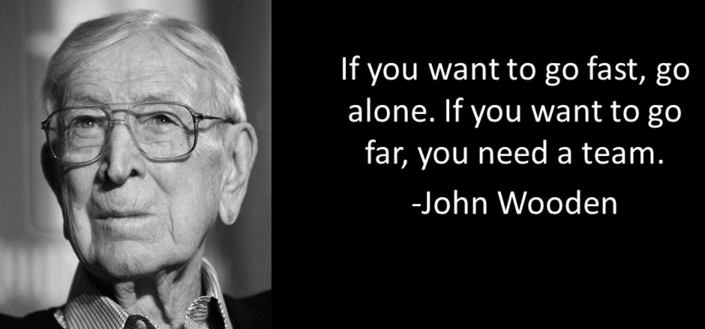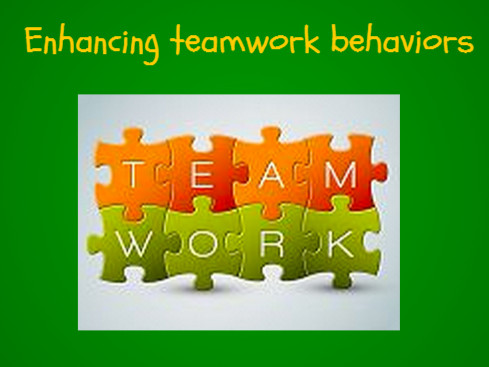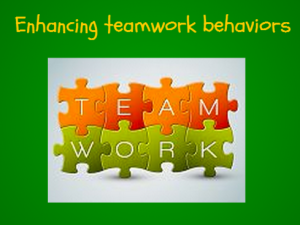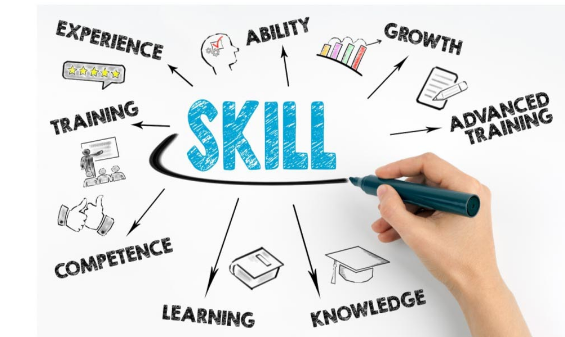How you ever used checklists to improve your learning … or perhaps your positive mental attitude? Are they sometimes useful for life?

How well did they work for you? Do they refresh your thinking on important life success lessons?
We often use checklists to achieve our goal to create the attitude that can see opportunity in every difficulty.
After college, I spent almost two years training as a naval aviator. An important element of that training was the use of checklists in the learning and refresher process. Checklist utilization remains an important part of my life, both in the personal as well as a business realm.
It took me 31 years of living to learn the most important character trait:
The good news is that you can learn this in one minute.
I’ve summarized my life experiences into main points: the single most important character traits for you to develop.
Useful for life … perseverance leads to mastery.
A sustained effort over time will typically lead to mastery.
When I first started writing, a few of my friends laughed at my books. Rightfully so. It was full of typos, had terrible grammar and pretty mundane content. None of it was spectacular.
The perfect word to describe it: Mediocre.
And the book sales reflected that.
Fast forward to today, and you’ll see that my writing has been published in Forbes, Fortune, Business Insider, Inc. and The Huffington Post.
People will often ask, “How did you manage to get published?”
The answer is simple: Perseverance.
I spent two years writing six books, 18 Quora posts, and 30 editorial pitches before I got published by a major media site.
Even after this momentum, the website I just launched was slow in gaining subscribers. For example, in about two months I had only signed up to 520 subscribers. However, after those two months of churning out weekly articles, last night I had a breakthrough of 64 subscribers in just one night!
Over time my writing has improved dramatically. My writing volume has also increased. It used to take me a few days to write an article. Now I can write a short article in an hour, and the quality is better.
This all happened because I stayed the course.
So when in doubt, always remember: persevere.
A useful life example.
Makes you mentally stronger
I’ve failed a lot.
One of my first jobs, when I was in high school, was working as a salesperson at a tuxedo shop. A few months in, I missed one of my shifts and was fired. I was really upset with myself.
I once tried to be a professional actor and met with an agent. She told me to find another career.
I once tried to be a professional writer. My first book was called “Push.” I think I sold a few Kindle copies. Mostly to family and friends. It was a long time ago.
Know what happened? I bounced back. For example, I ended up writing a second book called “The Resume is Dead.” It has over 40,000 Kindle downloads and hit #1 in the Resumes category.
I guess I could have quit writing. But why do that when it’s my passion? Better to learn from my mistakes and to keep improving.
Each of these experiences helped to shape me into who I am today.
Don’t spend time regretting your past. Do focus your energy on pushing forward.
Useful for life … teaches patience
Success isn’t built overnight. It’s built over many nights. Sometimes years. That’s why you’ve got to be patient. Let it be useful for life.
This doesn’t mean you don’t create and build with passion and intensity. You want that. But if you don’t have patience, you might end up giving up at a time when you’re just inches from success.
If you see meaningful progress and continued improvement, then it may make sense to continue to persevere.
When I first started writing the “The Resume is Dead,” I thought it would take a few months to finish it from beginning to end.
It took me an entire year. But despite all the times I got writer’s block or got a huge headache from proofreading the book, I never quit.
It’s the book I’m most proud of. And it was worth every minute.
Creating something worthwhile isn’t easy. Be patient.
I keep a stack of 10 or so checklists that I rotate and update occasionally. This is one of them, even though I am a retiree (at least part of the timeJ). I pull out one checklist to read and contemplate for five minutes as a way to start each day. I find it puts my thinking in the right frame of mind.
Here is a checklist of 10 of my favorite life lessons reminders I have found to improve the odds of long-term success. They are based on lessons I have learned along the road of 40 years of experience:
Focusing on value-add
In everything we do, we should focus on adding value. Gear efforts to results rather than work. Begin with the question, “What results are expected of me?” rather than with the work to be done, let alone with its techniques and tools.
Customer-centric focus
Focusing on the customer makes us more resilient.
What I have found is: start with the customer and work backward. This experience comes from my training and experience in systems engineering.
When you work from the end, you start with the customer and their needs and problems. This is the opposite of what some people do, which is: they think up ideas, build a product, and then see if customers like it.
Develop a vision
Vision. We are always fascinated by this skill. And it is a great skill to have in our view. Does it mean you see everything? Certainly not. It does mean you can see what many cannot. And then act on these. Vision doesn’t count without action. And not without managing the needed action required to implement.
That idea of staying the course for the long term has been the key to success. Vision requires the long term. Be stubborn on vision and have flexibility on details.
Making and executing effective decisions
Results most often depend on making effective decisions. I learned that an effective decision is always a “judgment based on dissenting opinions rather than on a consensus of the facts.”
What is needed are few, but fundamental decisions. What is needed is the right strategy rather than razzle-dazzle tactics. Act on the strategy and pay attention to follow-through.
Innovation
Learning from others is always important to me. For example, I have learned innovation from Amazon. They have one of the very best innovation cultures in an industry built around constant innovation and change. Why may you ask?
We believe there several good reasons. First, as one of the creators of the e-commerce industry, they know the industry is in its infancy and is built on a foundation of new technology and constant introduction of new ways of doing things.
Business is all about capturing intellect from every person. The way to engender this intellect is to allow employees far more freedom and far more responsibility.
Experiment and change
Remember, change and innovate, BEFORE you have to. Change is a big part of the reality in business. New ideas are the lifeblood of business. And the basis for creative change.
Your life will be in constant change mode, and that is a good thing if you lead change in the direction of your success goals. To do that most successfully, you should try lots of new things continually. For things you like, get very good at them with lots of practice. But keep trying new activities.
I love this quote from Jeff Bezos:

If you double the number of experiments you do per year, you’re going to double your inventiveness.
If you ask the best business leaders, they’ll tell you that experimentation is imperative for their business. It’s how innovations are born and how they stay competitive in the market. Experimentation is everywhere and is always happening.
Your career is not your life
This was probably the most difficult of my lessons, particularly early to mid-career. To be successful in this lesson, you should develop breath to your list of activities and always put family and friends first. To do both well, think about activities that maximize your friends and family, like coaching your children’s sports teams.
Dedicate yourself to continuous learning
I am a big believer in continuous learning. You should always seek to be flexible and keep several alternative paths in front of you. Always be on the lookout for ways to reinvent ways for self-improvement. Our most favored quote on continuous learning comes from Charles Darwin:
It is not the strongest of the species that survives, nor the most intelligent, but the one most responsive to change.
Remember to substitute success for survival, and you will have a very valuable life lesson on continuous learning.
Grow kindness
All of these life lessons get better when you have a strong foundation in knowing how to be kind to others. I have never found a better way to stay happy. Kindness costs you nothing, and you’d be surprised how much it can do for your happiness.
Find something to make you laugh
Another important factor in your happiness is enjoying a good laugh as often as you can. Making fun of yourself and your own mistakes is a great place to start.
The bottom line
As you progress in your continuous learning and development, keep in mind growth is a long-term, not a short-term endeavor. In reality, it should never end. It should be pursued consistently throughout your career, day by day.
To find good life lesson experiences, you have to try many avenues … and experience some failures along the way. I have learned this lesson well.
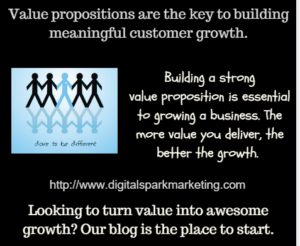
Call today for a FREE consultation or a FREE quote. Learn about some options to scope your job.
Call Mike at 607-725-8240.
All you get is what you bring to the fight. And that fight gets better every day you learn and apply new ideas.
When things are not what you want them to be, what’s most important is your next step. Call today.
Test. Learn. Improve. Repeat.
Are you devoting enough energy continually improving your continuous learning?
Digital Spark Marketing will stretch your thinking and your ability to adapt to change. We also provide some fun and inspiration along the way. Call us for a free quote today. You will be amazed at how reasonable we will be.
More reading on learning from Digital Spark Marketing’s Library:
9 Things to Know About Creative Visual Design Content
8 Presenter Mistakes That Are Rarely Made Twice
Know These Great Secrets of Collaboration and Co-Creation
How Good Is Your Learning from Failure?
Mike Schoultz is a digital marketing and customer service expert. With 48 years of business experience, he consults on and writes about topics to help improve the performance of small business. Find him on G+, Facebook, Twitter, Digital Spark Marketing, and LinkedIn.
